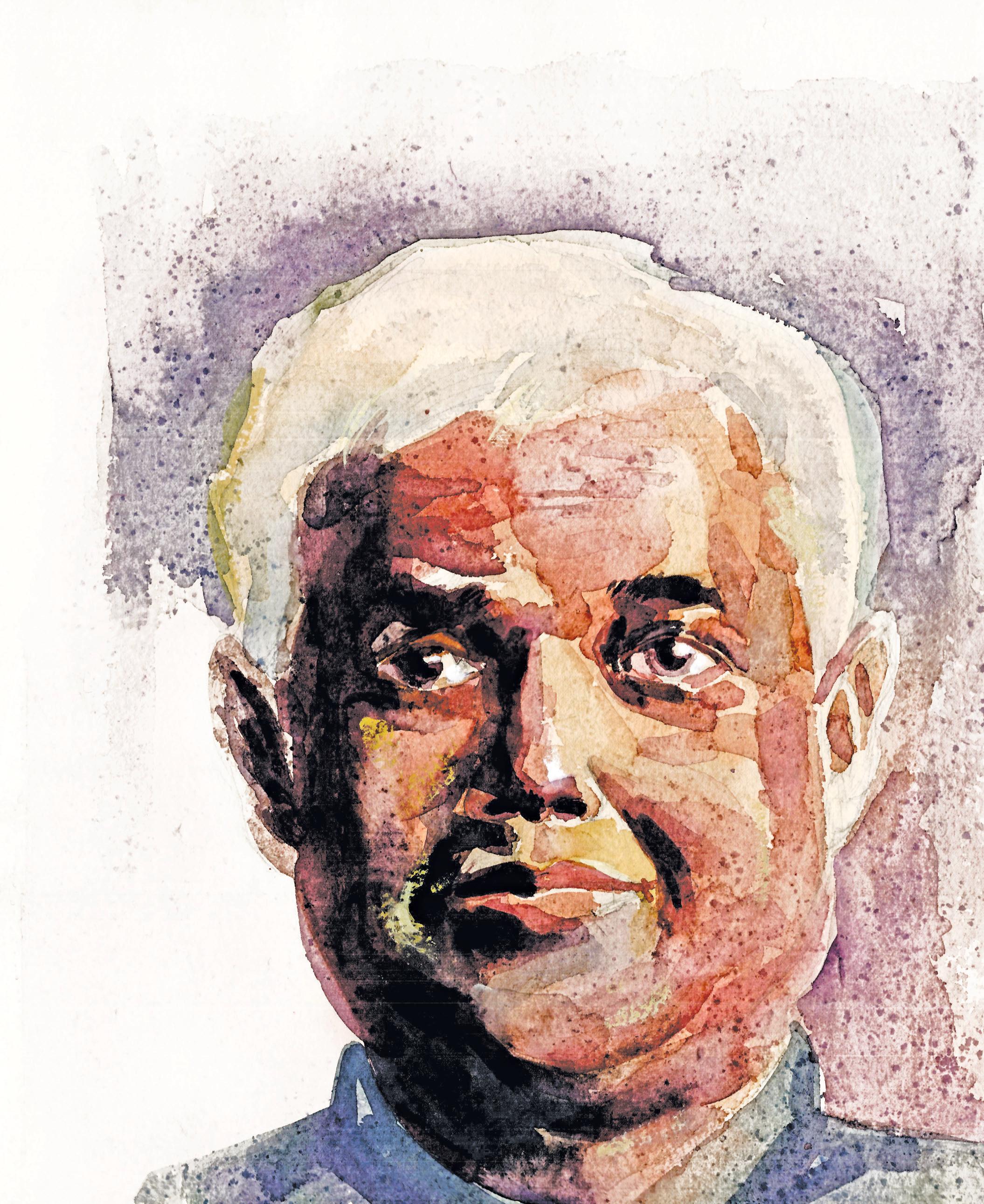'Migration is going to be a battlefield'
Down To Earth
|February 01, 2025
AMITAV GHOSH is one of the foremost chroniclers of our times. His literary sojourn includes writings on topics that range from languages to climate change to human lives. His latest book, Wild Fictions, brings some of his works on these issues under one title. In a conversation with RAJAT GHAI, Ghosh shares his views on the future of human movement. Excerpts:

You write in the introduction about Antonio Gramsci’s “a time of monsters”, and term the extreme weather events of today to be such monsters. What prompted you to think of this analogy?
These are not just weather events. They are also political ones. When Gramsci talked about one order having died and another one waiting to be born, and in between there being the time of monsters, he was talking about fascists; purely political creatures, if you like.
But now, we also have these purely environmental monsters which are also purely political because climate change itself is intensely political. It arises out of national inequalities and extreme geopolitical hierarchies. So we can no longer say they are just environmental disasters. They are, in some profound sense, political disasters.
How do you see current climate politics and negotiations from the prism of your statement?
I do not know if that came as a surprise to anyone. It certainly did not come as a surprise to me. It was perfectly self-evident that they were going to fail because what these negotiations are essentially centred on is preserving inequalities. The status quo powers want to preserve their great privileges in the world. Obviously, those who were under-privileged before, do not want that situation to continue. I think that is the juncture or dead wall that is impossible to pass beyond. The affluent countries of the West repeatedly say there is no money for climate mitigation. They offered a very trivial sum for mitigation. At the same time, they are increasing their defence spending by leaps and bounds. It is actually unimaginable how they are able to do this. None of it makes any sense.
Climate change and migration are two cognate aspects of the same thing, you write. Could you elaborate?
Denne historien er fra February 01, 2025-utgaven av Down To Earth.
Abonner på Magzter GOLD for å få tilgang til tusenvis av kuraterte premiumhistorier og over 9000 magasiner og aviser.
Allerede abonnent? Logg på
FLERE HISTORIER FRA Down To Earth

Down To Earth
KING OF BIRDS
Revered for centuries, western tragopan now needs protection as its forests shrink, human pressures mount
3 mins
December 16, 2025

Down To Earth
WHISKERS ALL AQUIVER
Climate change threatens creatures that have weathered extreme environments for thousands of years
2 mins
December 16, 2025

Down To Earth
GOLDEN SPIRIT
Survival of the shy primate is closely tied to the health of Western Ghats
3 mins
December 16, 2025

Down To Earth
RINGED EYES IN THE CANOPY
Rapid habitat destruction forces arboreal langur to alter habits
2 mins
December 16, 2025

Down To Earth
HANGING BY THE CLIFF
The Himalaya's rarest wild goat is on the brink of local extinction
2 mins
December 16, 2025

Down To Earth
ANGEL OF THE BEAS
Conservation reserves, citizen science, and habitat protection give the Indus River dolphin a fighting chance in India
2 mins
December 16, 2025

Down To Earth
UNDER MOONLIT SCRUB
Survival of this hidden guardian tells us whether our scrublands still breathe
2 mins
December 16, 2025

Down To Earth
SYMBOL OF SILENT VALLEY
Lion-tailed macaque remains vulnerable despite past victories
2 mins
December 16, 2025

Down To Earth
THE APE IN OUR STORIES
India's only non-human ape species is a cultural icon threatened by forest fragmentation
2 mins
December 16, 2025

Down To Earth
SENTINEL OF THE HIGH COLD DESERT
The bird's evocative call may not continue to roll across the cold desert valley for long
3 mins
December 16, 2025
Listen
Translate
Change font size

